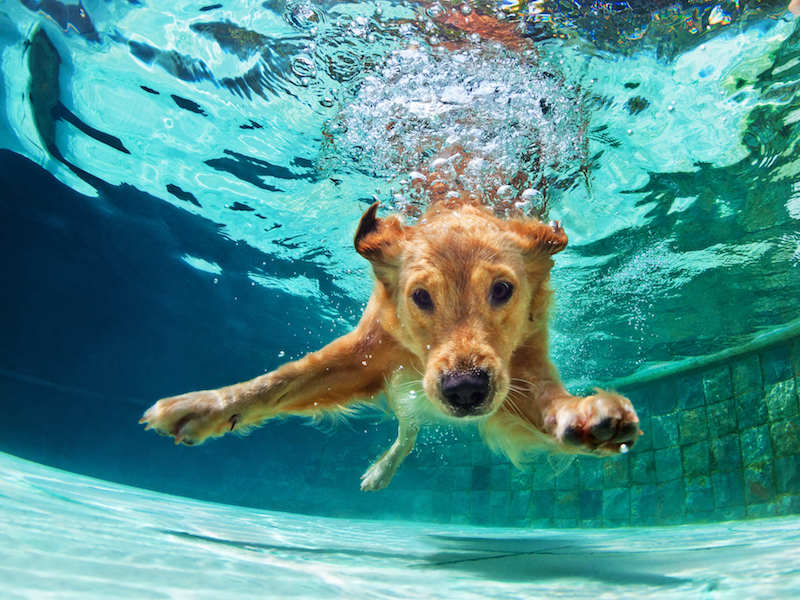
There are a lot of different things that can damage the delicate that makes a hearing aid work the way it does, but few have the impact of water. Hearing aids seem to self-destruct under severe moisture conditions. Even if you already know that and take care to protect your investment from the shower, pool, or a good face washing, more than likely you are missing the most common cause of water damage in hearing aids: humidity.
Irreversible damage is done by invisible moisture. It’s time to learn more about why humidity is a negative thing for hearing aids.
Understanding Humidity
Humidity is a word that gets talked about a lot, especially during the summer months, but what does it mean? PBS defines humidity as water molecules in the air. The relative humidity refers to the ratio of water molecules in the air compared to how many the air can actually hold. When you can feel wetness in the air, that means the relative humidity is high.
Humans are very sensitive to humidity because sweat is the most efficient way to cool down the body. When humidity levels are too high our sweat will not evaporate as quickly. Moisture and electronics don’t mix well and that includes hearing aids.
Understand Humidities Effect on Hearing Aids
Too high or, too low, humidity can affect your hearing aids. When water vapor percentages are high condensation can collect on the intricate elements that make electronic devices function, and low humidity can cause brittle core materials.
Internal electronics are the reason your hearing aids work. Newer digital hearing aids use a sophisticated audio processing chip to manage noise. Because of this, you get amazing features like:
- Noise reduction
- Anti-feedback
- Targeted listening programs
- Digital sound streaming
Moisture can collect in the hearing aid when humidity is high and damage that component. It can corrode elements inside the casing and destroy batteries as well. You might as well drop your hearing aid in a pool full of water, and the effect is the same.
Managing Humidity
Water resistant models are currently on the market. Having this feature doesn’t mean you can swim with your hearing aids in place, but it does offer some protection against humidity and other weather-related concerns such as getting caught in an unexpected rainstorm or even sweat when you exercise.
If you live in a humid area, think about getting a room or house dehumidifier to lessen water vapor inside. It’s an investment that will help you and your family in many ways and protect other electronic devices like that costly TV you got for Christmas. Dust mites, mildew, and mold thrive in moist environments so a dehumidifier will improve the quality of breathing as well. Although a house or room dehumidifier will help protect your hearing aids, it’s not enough. You will need to take other steps at the same time.
Consider buying a dehumidifier designed especially for hearing aids. They come at all costs levels. Silica gel crystals in a drying kit are used to protect electronics. You put the device in the dehumidifier for a couple of hours to eliminate moisture. Drying your hearing aids as you sleep at night can be done using specially designed storage containers. In a pinch, you could use a bag of uncooked rice to remove moisture.
Get in the habit of opening the battery compartment every time you store your hearing aids. When you expose the battery and inner elements to air by leaving the door open, condensation can evaporate by itself. Don’t just do this in the summer, do it all year round.
A cool dry place is the ideal for storage. Avoid putting them in the glove compartment, in a hot room or on a table in the sun.
Other Moisture Issues
Air vapor is not the only moisture that can damage hearing aids. Take precautions to protect them from other kinds of wet such as:
- Make sure all lotion or sunscreen is fully absorbed before touching your hearing aids or putting them in your ears.
- Leave your hearing aids in a safe place before you go swimming.
- Wear a sweatband when exercising. It’s a good practice whether you wear your hearing aids when you workout or not. Later that sweat will cause problems.
- Check surfaces before you put your hearing aid down. A glass or coffee cup can leave moisture behind.
Your hearing aids are a valuable asset, so treat them that way. Keep in mind how moisture can damage your hearing aids and make sure to prevent water from getting in them. If your hearing aid already has water damage make an appointment for service with a hearing aid specialist.
